MercoPress. South Atlantic News Agency
Tag: Inflation
-
Tuesday, February 11th 2020 - 07:55 UTC
Brazilian January inflation at its lowest driven by sharp decline in meat prices

Brazilian inflation kicked off the year on a soft footing, official figures showed, as the IPCA consumer price index posted its smallest January increase since the country’s “Real Plan” was launched more than a quarter of a century ago.
-
Saturday, December 7th 2019 - 09:39 UTC
Rising cost of meat pushes Brazil's November inflation to a high month-on-month increase

Brazilian consumer price inflation bounced back to seven-month highs in November from ultra-low levels the month before, led by the rising cost of meat and regulated prices like electricity, official figures showed on Friday.
-
Tuesday, November 26th 2019 - 09:48 UTC
Argentina 2019: annual inflation of 55% and economy contraction of 2.7%

Argentina will finish 2019 at 55% annual inflation, the country’s treasury minister said on Monday, capping off a tumultuous year for Latin America’s No. 3 economy that also saw voters usher in a new leftist government.
-
Wednesday, November 20th 2019 - 09:55 UTC
Brazil's Real depreciating against the US dollar, but inflation remains below target
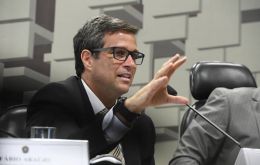
Brazil’s Real is sliding toward an all-time low against the U.S. dollar, but the central bank appears in no rush to intervene to slow or even reverse the fall. Despite the Real’s historical weakness, the market is functioning smoothly: depreciation, so far, has been fairly orderly, volatility is low, liquidity has not dried up, and the Real is not the only emerging market currency under pressure.
-
Tuesday, November 19th 2019 - 08:55 UTC
Maduro publicly thanks God for the all mighty dollar as an escape valve for Venezuela's economy

Venezuelan President Nicolás Maduro embraced the currency of his bitter rival the United States on Sunday, calling it an “escape valve” that can help the country weather its economic crisis amid U.S. sanctions aimed at forcing him from power.
-
Thursday, October 31st 2019 - 09:49 UTC
Brazil cuts benchmark interest rate to an all time low of 5%; inflation running below target
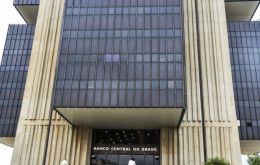
Brazil's central bank cut its benchmark interest rate to a new all-time low of 5.00% on Wednesday as expected, but signaled that further easing may be less aggressive than it has been in recent months, despite inflation running well below target.
-
Tuesday, October 1st 2019 - 09:55 UTC
Argentina's recurring nightmare
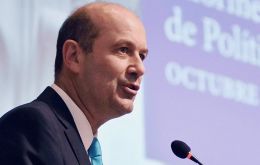
By Andrés Bello (*) - Argentine President Mauricio Macri seems almost certain to lose his country’s presidential election next month, after committing the same kinds of economic policy mistakes that so many of his Peronist predecessors made. It is a tragic and catastrophically disappointing denouement.
-
Wednesday, September 25th 2019 - 09:38 UTC
Persistently low inflation in Brazil anticipates further cut in interest rate
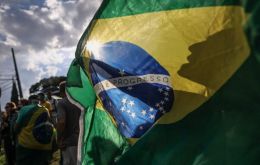
Gradual economic growth and persistently low inflation in Brazil are likely to pave the way for a further reduction in interest rates, the country’s central bank indicated on Tuesday, warning that global economic conditions appear to be deteriorating.
-
Tuesday, September 24th 2019 - 09:08 UTC
Argentine private sector workers given extra payment to compensate for inflation
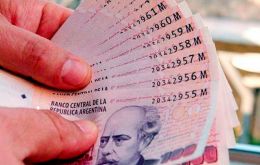
Argentina's private-sector workers will see their wages topped off by 5,000 pesos (US$ 88) in a one-time non-taxable payment aimed at boosting their buying power amid surging inflation, the Production Ministry said on Monday.
-
Friday, September 20th 2019 - 10:22 UTC
Argentine Central Bank will produce more Pesos: higher inflation is expected

According to estimates among analysts, the Argentine Peso's production will be around $ 300,000 million for the remainder of the year, estimating inflation for 2020 even higher than this year. 80% of that issuance corresponds to the last month of the year, breaking the objective that the Central Bank of Argentina (BCRA) of “zero-emission” had set and jeopardized the exchange control as it works since August.
